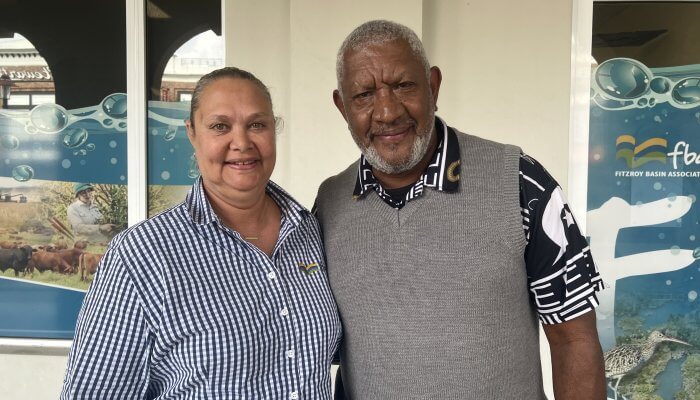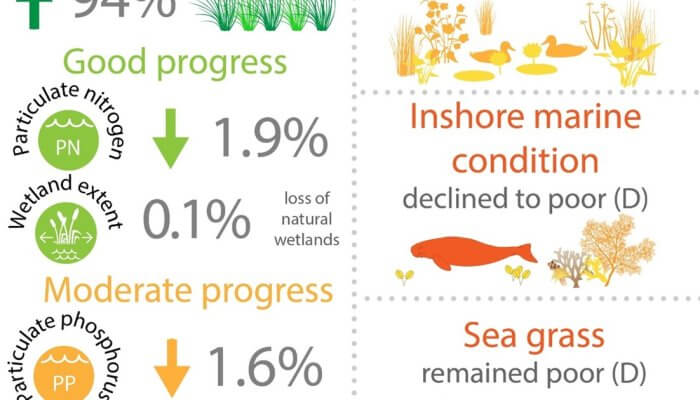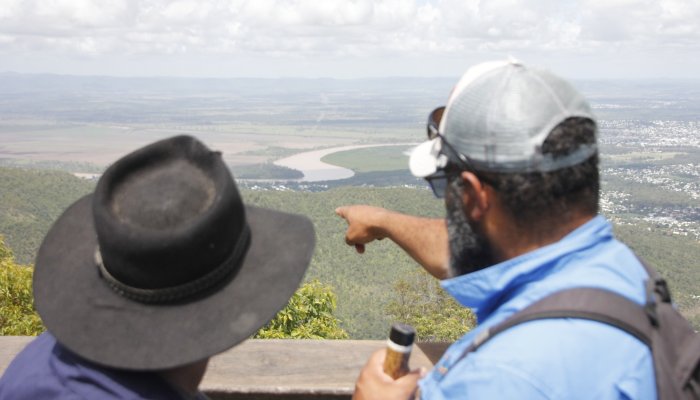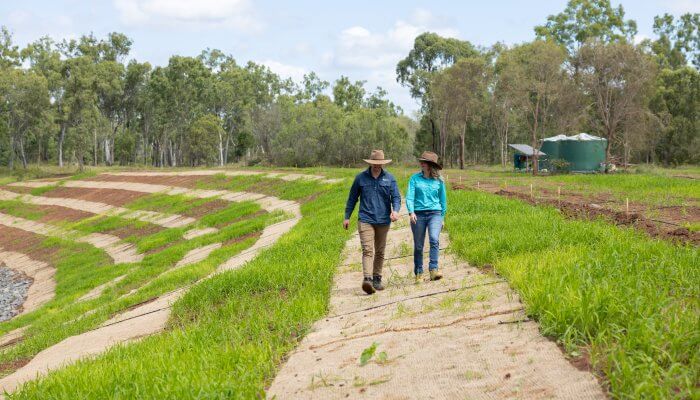Resources library - Community and Volunteers
Community and Volunteers Resources
Building Resilience – Cyclone Flood Recovery
Building Resilience - Ex-tropical Cyclone Oswald Flood Recovery
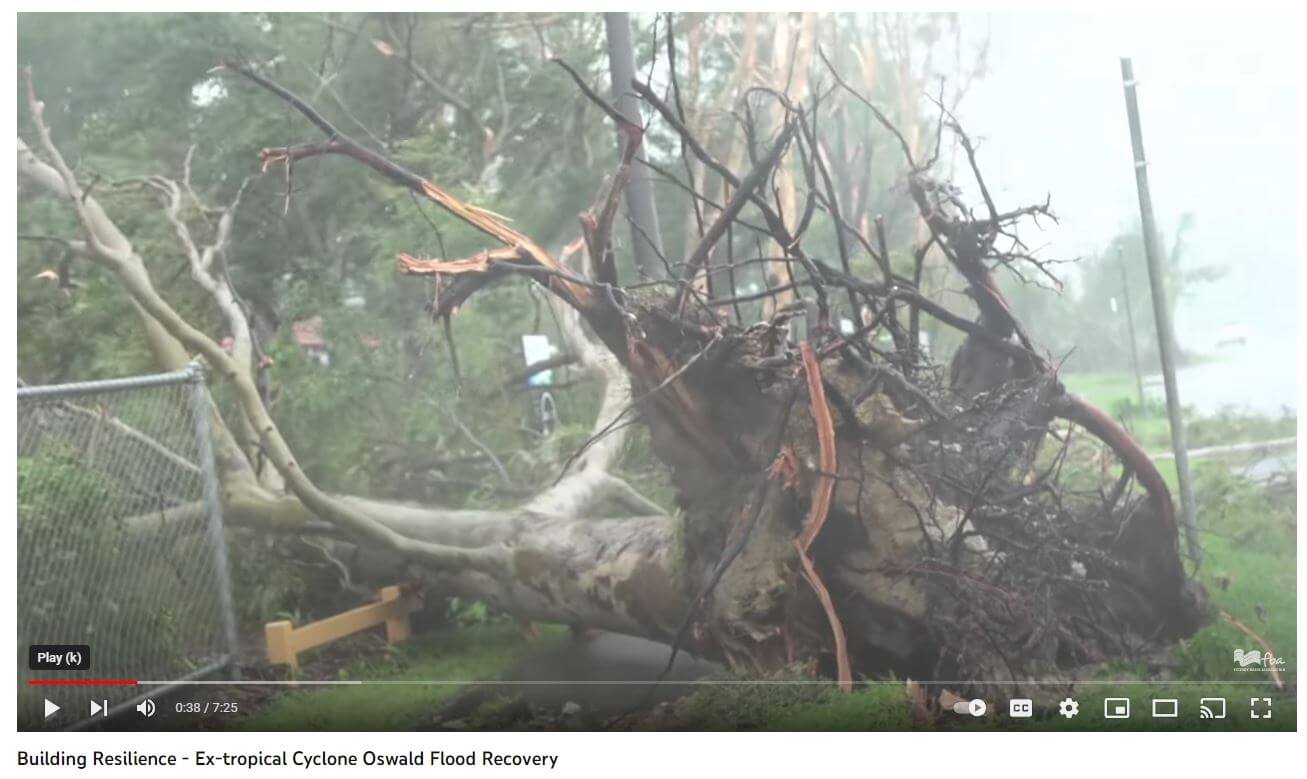
In January 2013, excessive rain from Ex-Tropical Cyclone Oswald—800mm over 20 hours—triggered massive flooding in areas, higher than previously seen. The rain event caused major structural damage to fencing and water infrastructure, as well as land degradation through erosion. Recovery work was completed through funding from the Queensland Government's Natural Disaster Relief and Recovery Arrangements: Ex-Tropical Cyclone Oswald On-farm Productivity and Riparian Restoration Program. FBA and our local delivery partners FRCC and DCCA, worked with landholders in the worst affected areas to repair the damage. On-ground restoration activities included streambank stabilisation and riparian restoration; gully stabilisation and soil conservation; and farm infrastructure restoration. The program also supported and promoted on-farm productivity, and enhanced local landscape, waterway and ecosystem capacity, and resilience to manage the impacts of future events.
02/07/2015
Marine debris case study
Understanding marine debris for cleaner beaches
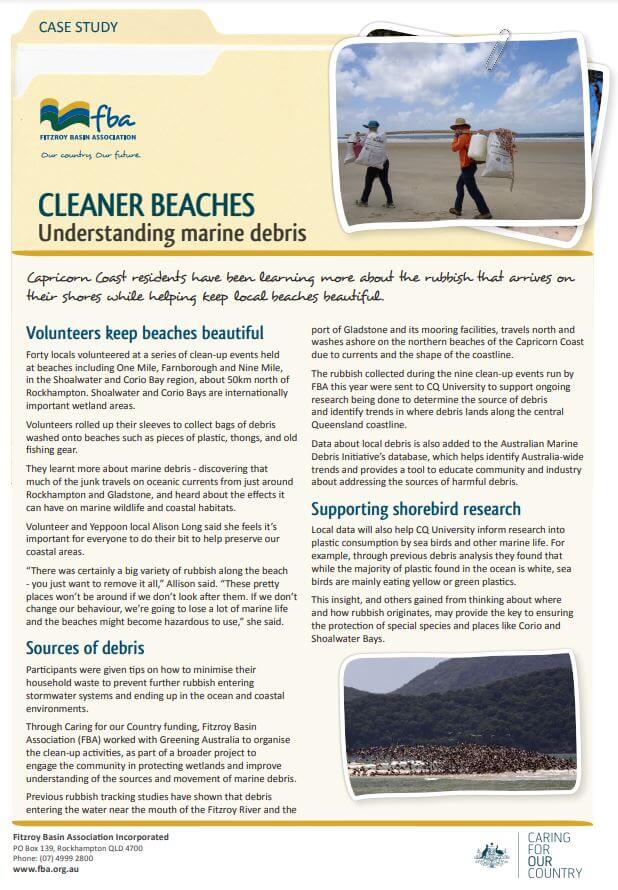
Capricorn Coast residents have been learning more about the rubbish that arrives on their shores while helping keep local beaches beautiful.
29/07/2013
Helping rare frogs case study
Helping rare frogs
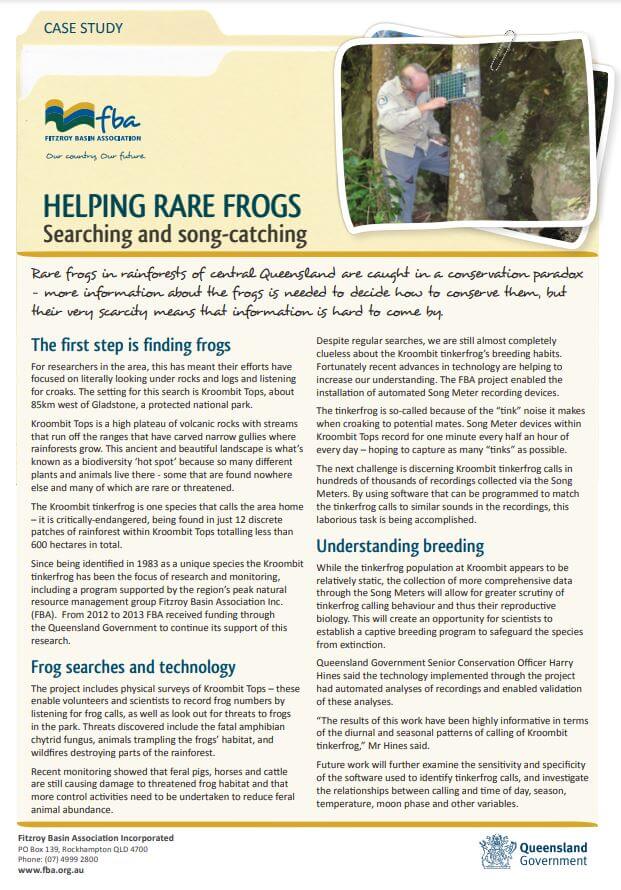
Rare frogs in rainforests of central Queensland are caught in a conservation paradox - more information about the frogs in needed to decide how to conserve them, but their very scarcity means that information is hard to come by.
27/07/2013
Coast dune restoration case study
Better beach habitat - changing 4WD habits
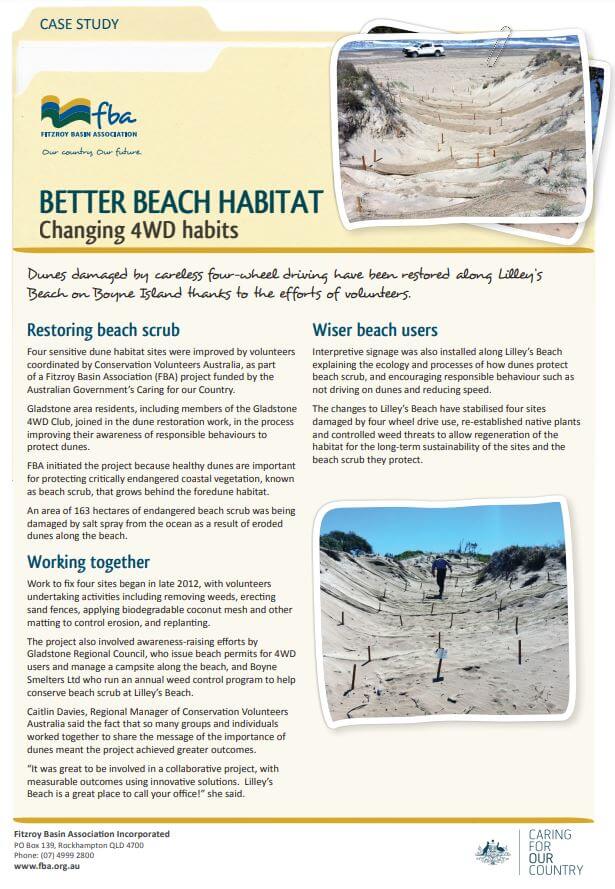
Dunes damaged by careless four-wheel driving have been restored along Lilley’s Beach on Boyne Island thanks to the efforts of volunteers.
23/07/2013
Wetland protection case study
Wetland protection - reducing the impact of weeds
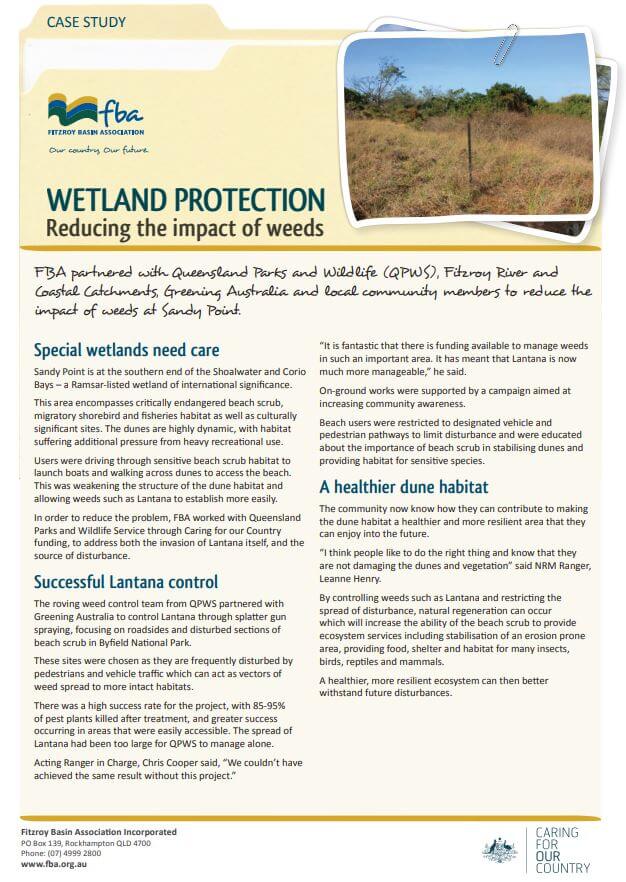
FBA partnered with Queensland Parks and Wildlife (QPWS), Fitzroy River and Coastal Catchments, Greening Australia and local community members to reduce the impact of weeds at Sandy Point.
23/07/2013
Indigenous Culture – capturing traditional knowledge
Indigenous Culture - capturing traditional knowledge
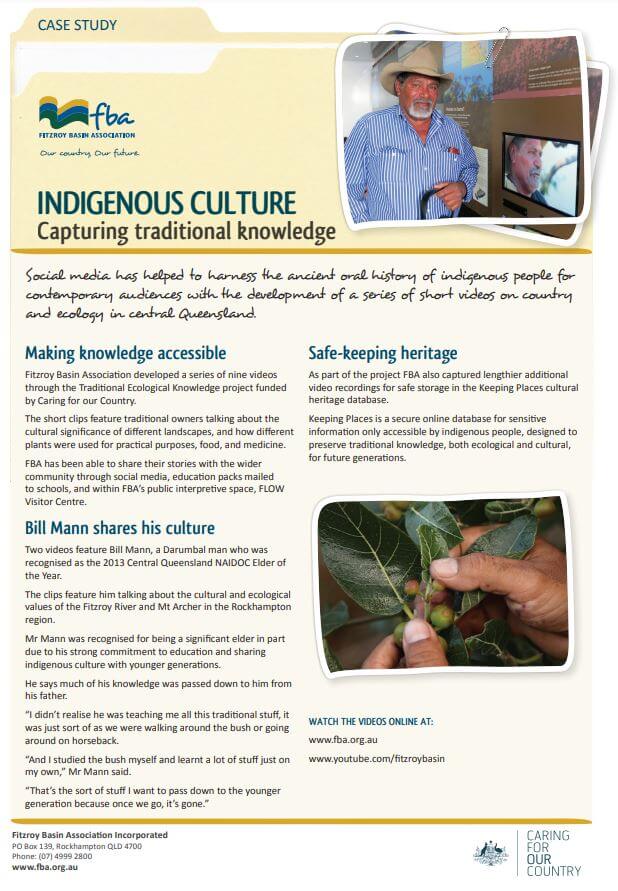
Fitzroy Basin Association developed a series of nine videos through the Traditional Ecological Knowledge project funded by Caring for our Country. The short clips feature traditional owners talking about the cultural significance of different landscapes, and how different plants were used for practical purposes, food, and medicine.
16/07/2013
Fishway case study
Wran Creek Fishway - freeing fish to migrate
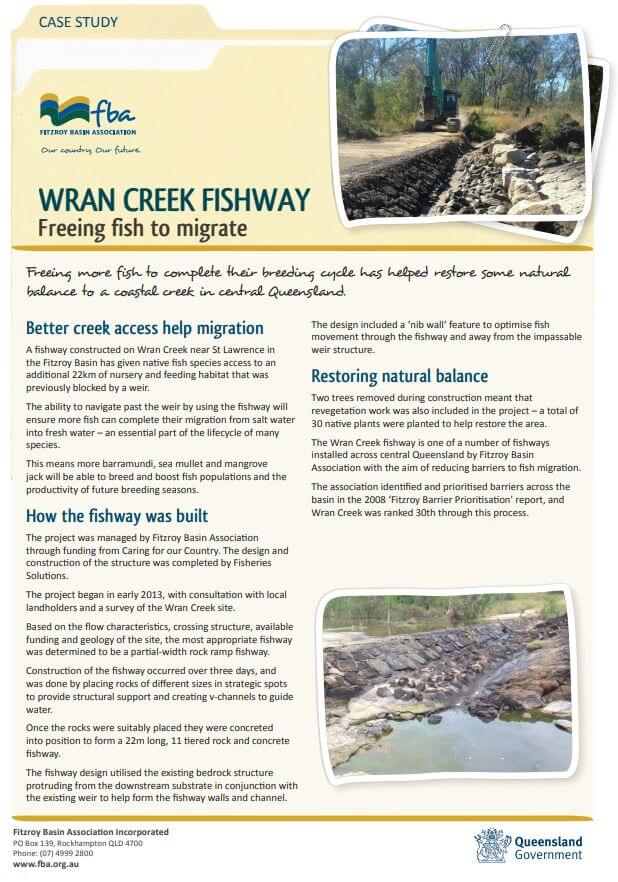
Freeing more fish to complete their breeding cycle has helped restore some natural balance to a coastal creek in central Queensland.
16/07/2013
The Fitzroy River with Billy Mann
The Fitzroy River with Billy Mann
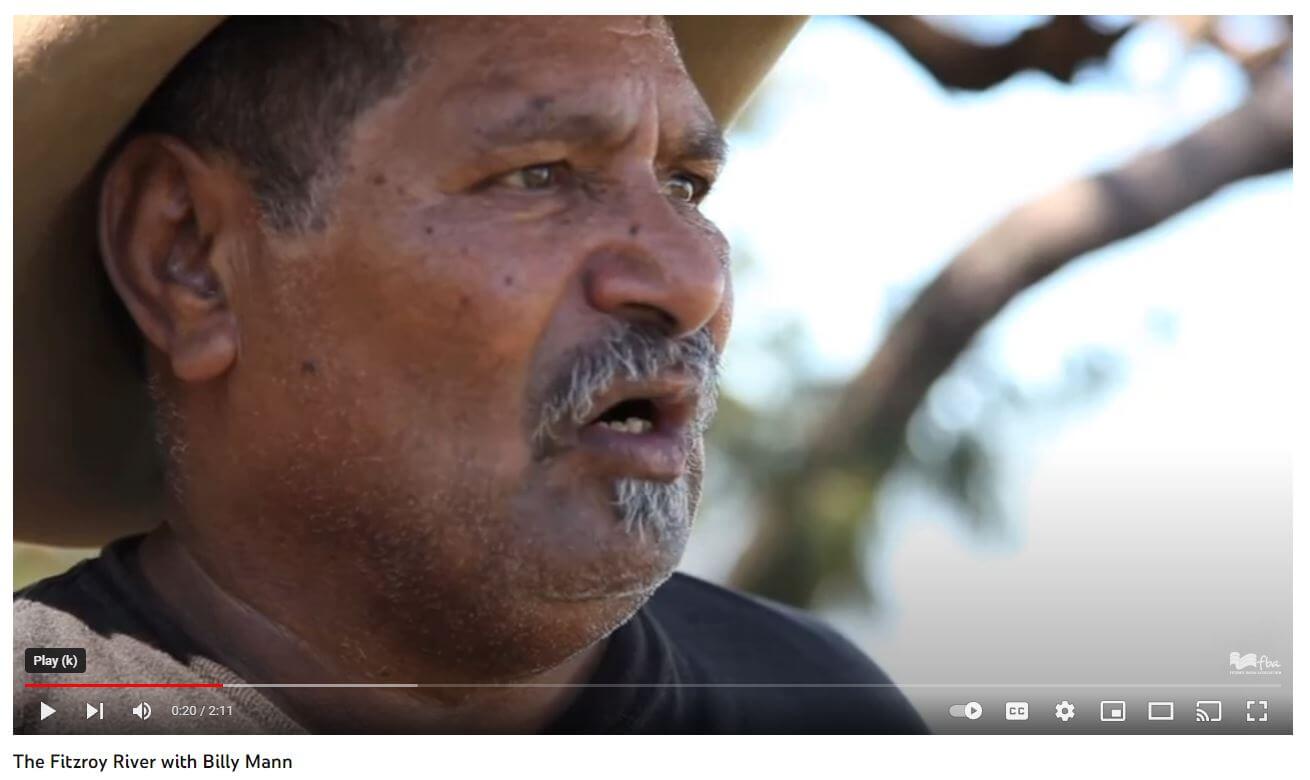
Local traditional owner Billy Mann talks about the mighty Fitzroy River and the cultural significance of the water course to his people. This video is part of a series developed through funding from the Australian Government to increase the knowledge and understanding of local traditional ecological knowledge. Elders have shared their knowledge of local landscapes to ensure it is available to future generations in an easily accessible format.
29/04/2013
Plants and culture on Great Keppel Island with Bob Muir
Plants and culture on Great Keppel Island with Bob Muir
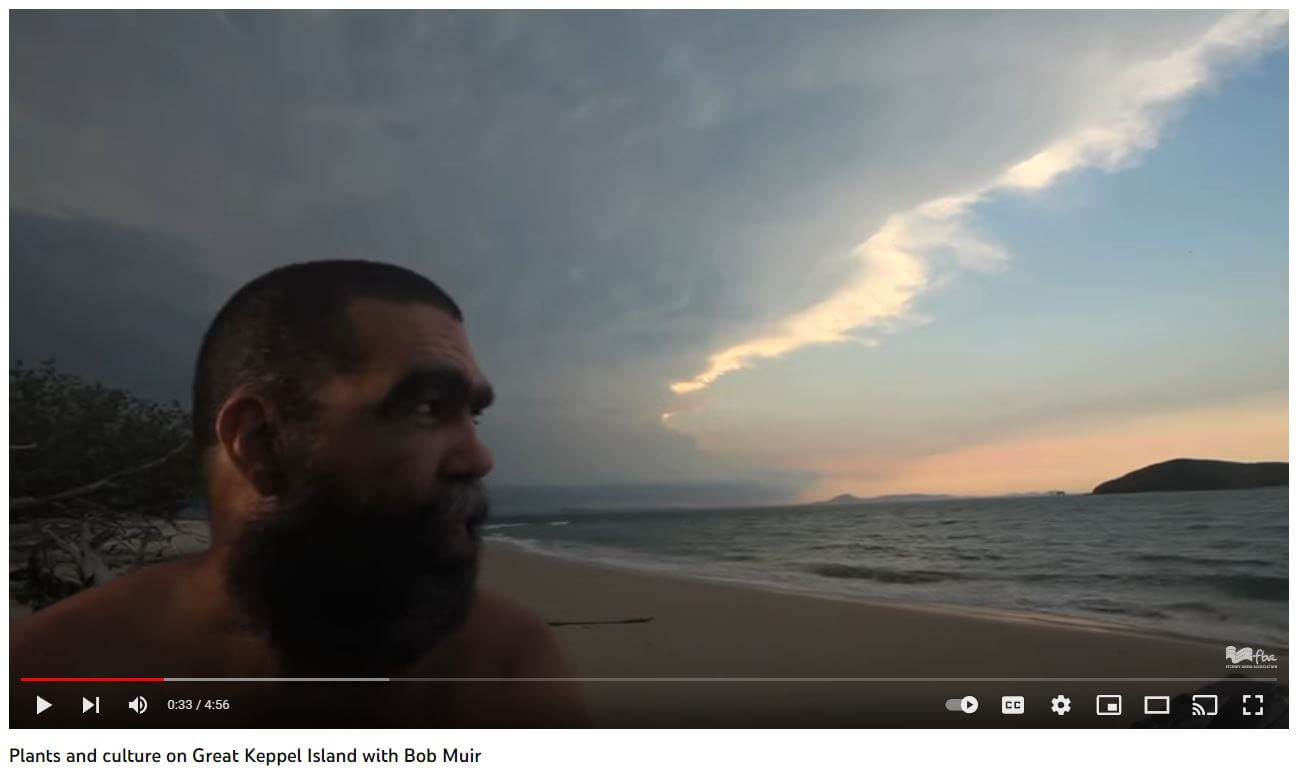
Bob Muir has been awarded NAIDOC's elder of the year for his work in the community, including his efforts to maintain cultural heritage sites on Great Keppel Island off the Capricorn Coast. Bob is a descendant of the Woppaburra people. Here he talks about how nature was understood and used by traditional owners on the island. This video is part of a series developed through funding from the Australian Government to increase the knowledge and understanding of local traditional ecological knowledge. Elders have shared their knowledge of local landscapes to ensure it is available to future generations in an easily accessible format.
23/04/2013





